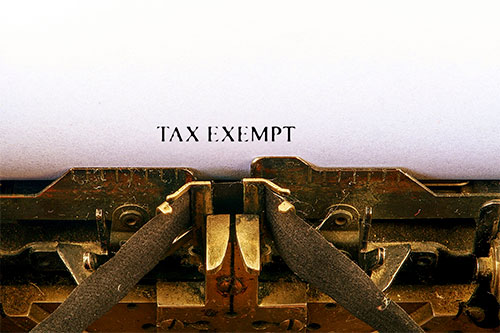Tax Exempt Status
There are many organizations in the U.S. set up as non-profit or charitable organizations, who are granted tax-exempt status by the IRS. If you are in the process of, or contemplating forming such an organization, it is helpful to know how to do so. The purpose of this article is to explore the process and general requirements to create a tax-exempt entity.
There are some parallels for a tax-exempt organization to forming a taxable business. You must still create an entity, and obtain a tax number (Employer Identification Number, EIN) as a way that the government can identify your organization.
The general rules in the tax code for this type of tax-exempt organization are found under Section 501(c)(3), so these organizations are often identified by the tax section that governs them.
In order to apply for recognition as tax-exempt, an organization must apply using a Form 1023-series application, available at the IRS website. The IRS.gov website includes a step-by-step guide, and the Form 1023-series application needed to apply. There is a fee, and the application, once complete, must include the user fee and be submitted online at www.pay.gov.
Some types of organizations do not need to apply for Section 501(c)(3) status in order to be tax-exempt. Included in this category would be churches, plus auxiliaries that are directly integrated with a church, and public charities (this group of charities usually have annual gross receipts that are less than $5,000.
AS mentioned above, every tax-exempt organization will require an EIN number from the federal government, even if they do not have any employees. An organization can obtain an EIN by applying online or calling 800-829-4933.
The application for tax exempt status can be filed at the time of organizing the organization, or for up to 27 months after the organization is formed. Once correctly filed, the application must be accepted, and then tax-exempt status will be granted back to the time of formation. The organization will be classified as a private foundation unless it meets the qualifications to be treated as a public charity. Public charities must make certain documents available to the IRS, including its last three information returns. These are outlined in Publication 557 on the www.irs.gov website. For more information on tax exempt status, go to this website and search areas such as tax-exempt status and Form 1023. And as always, please consult with your tax accountant, and possibly a tax attorney to make sure that your organization will meet the requirements for tax exempt status. It makes more sense to do your research in advance, rather than to find out later that you are not a qualified organization.
_______________________________________________
I www.irs.gov website Tax Exempt

